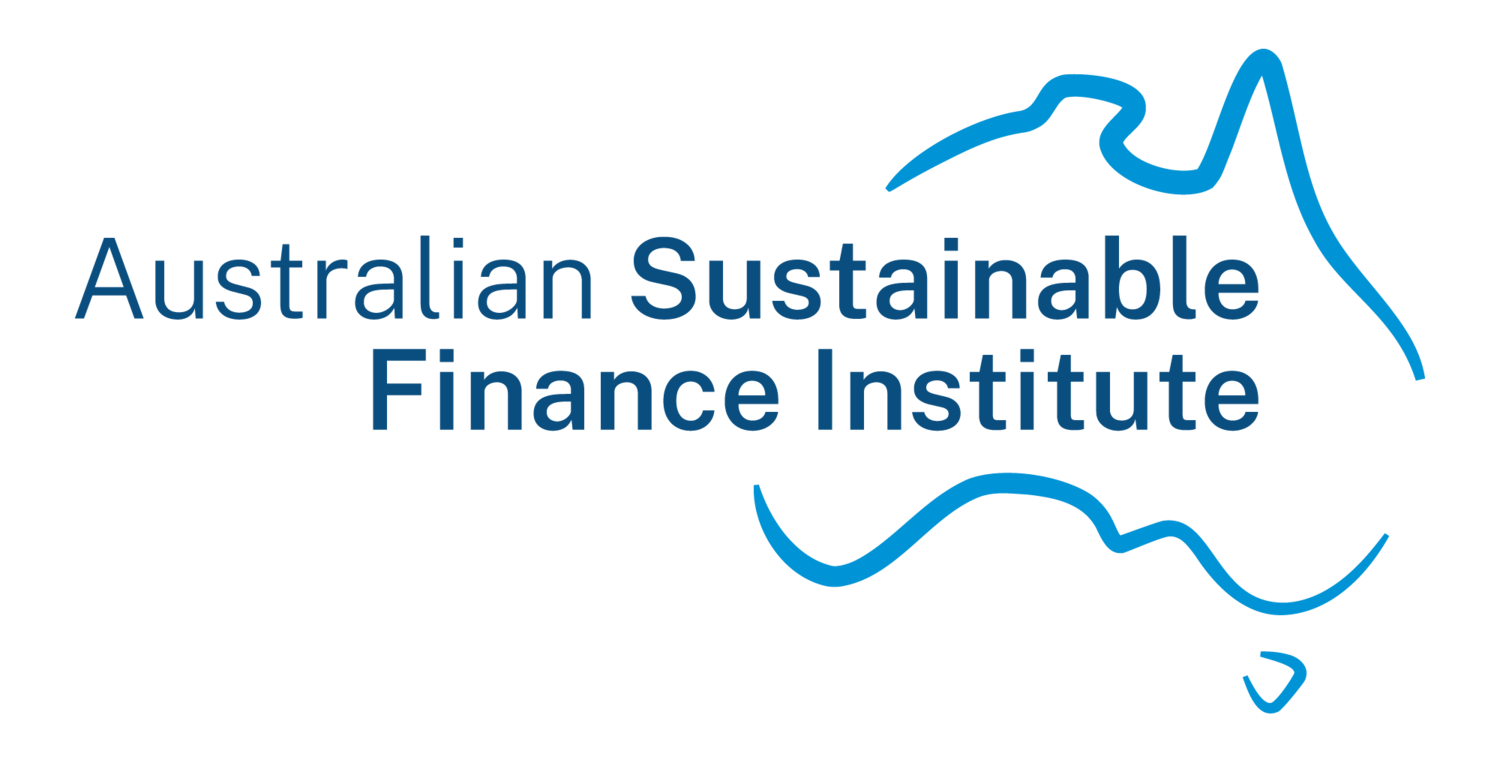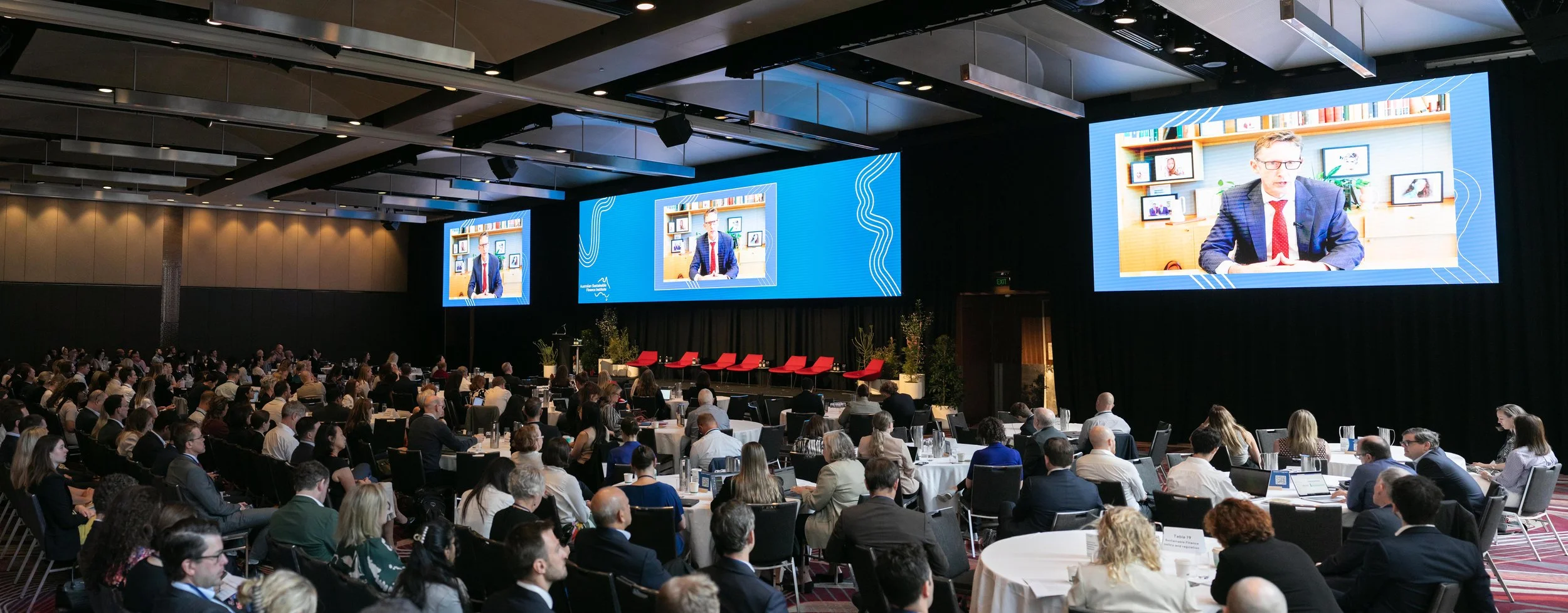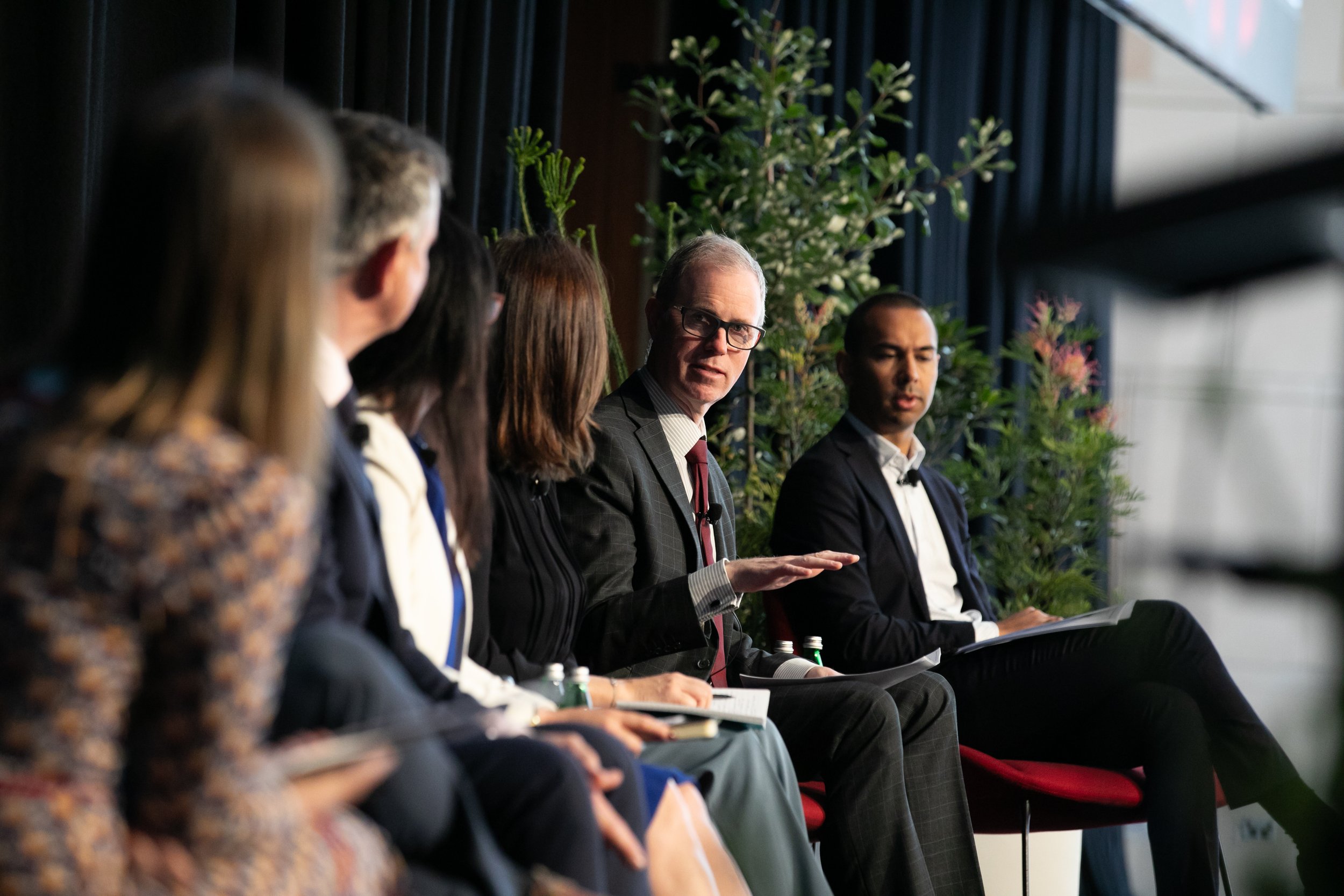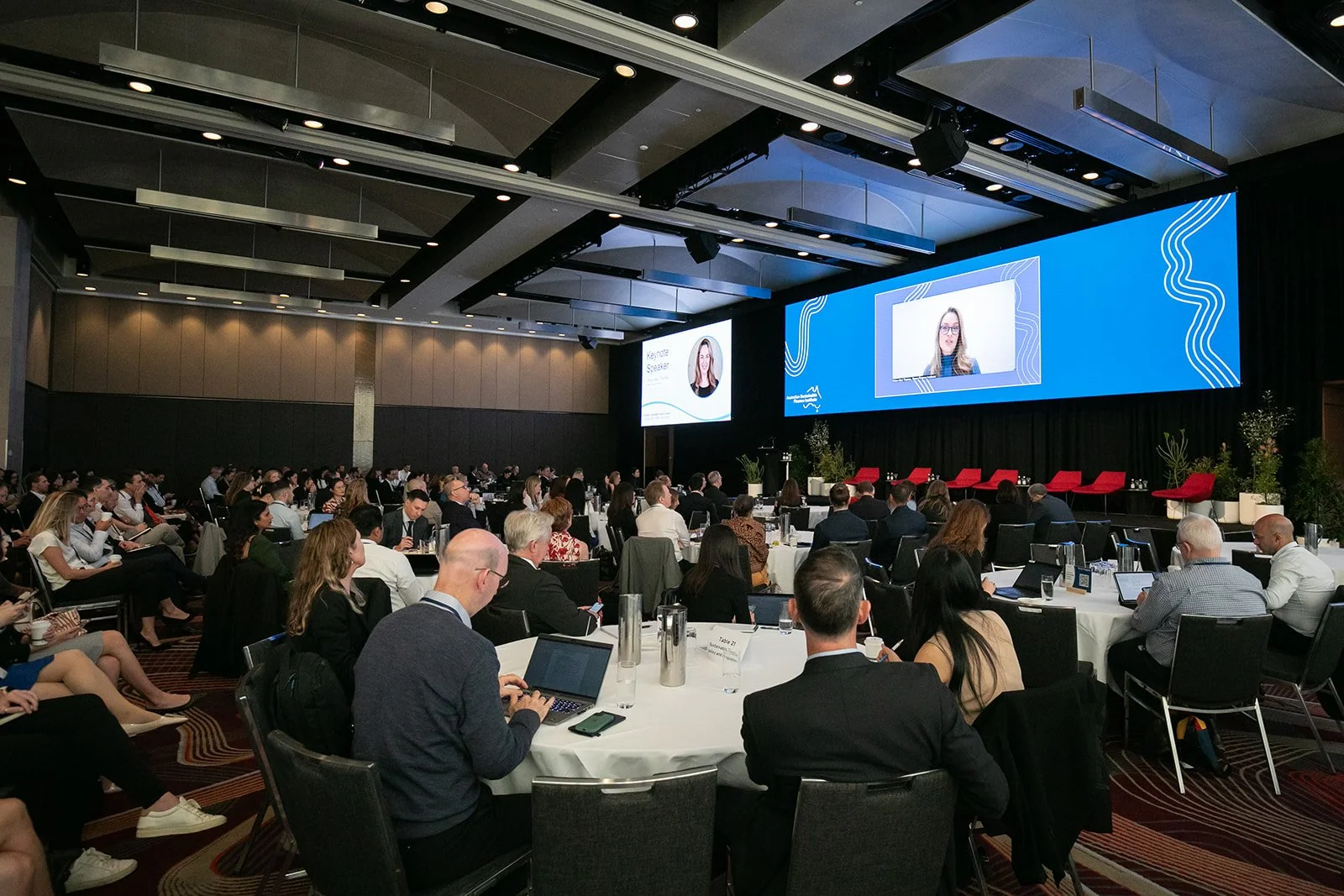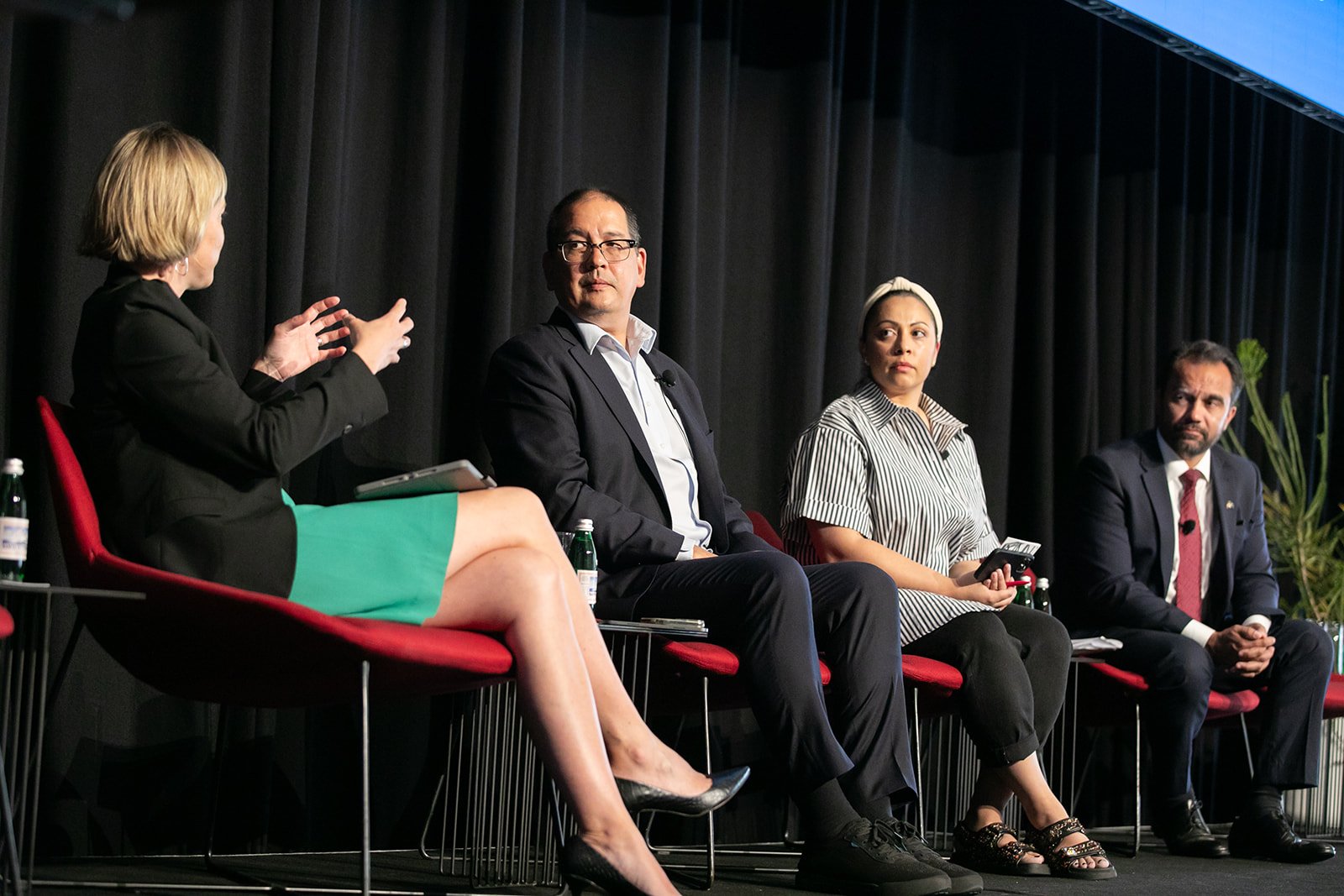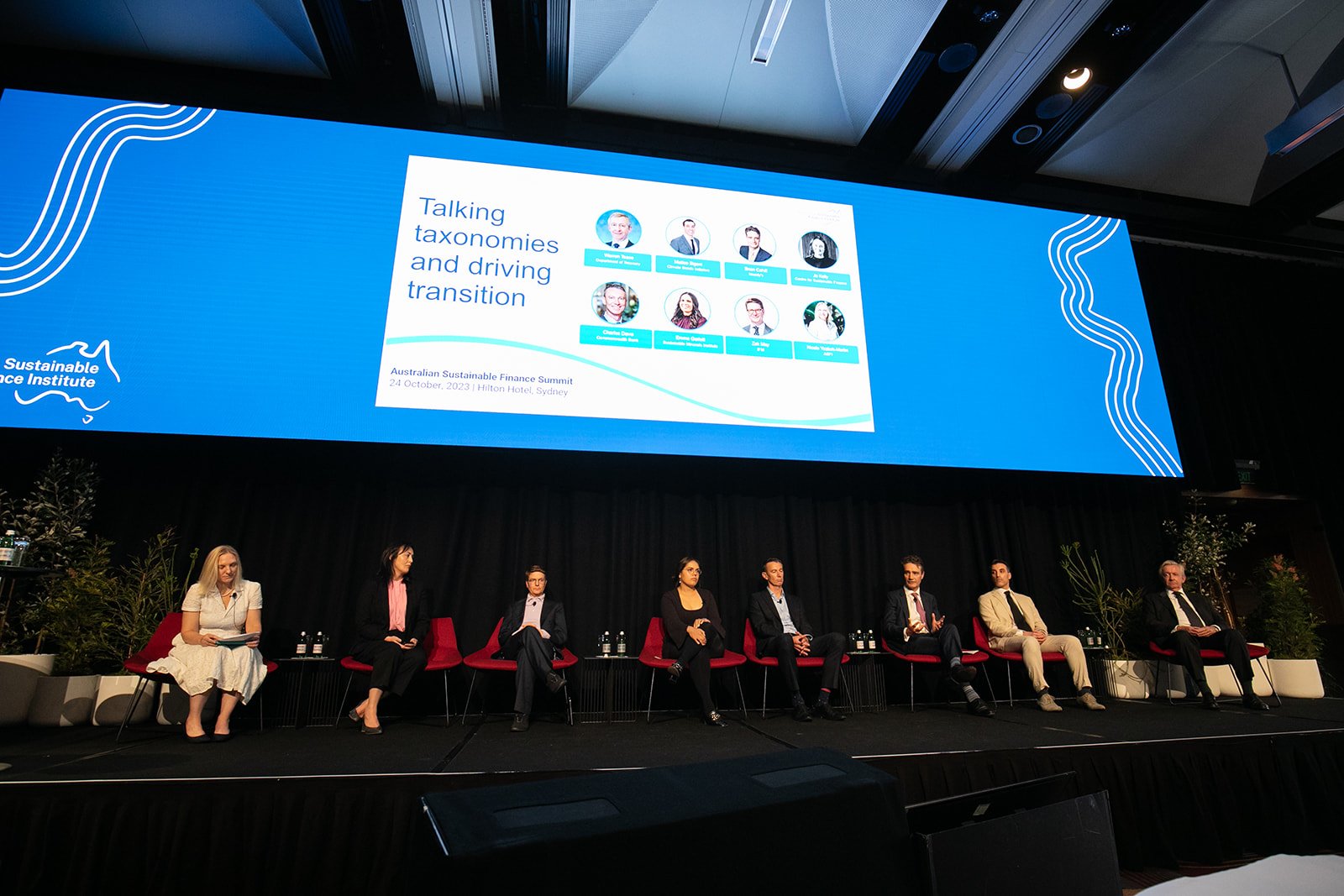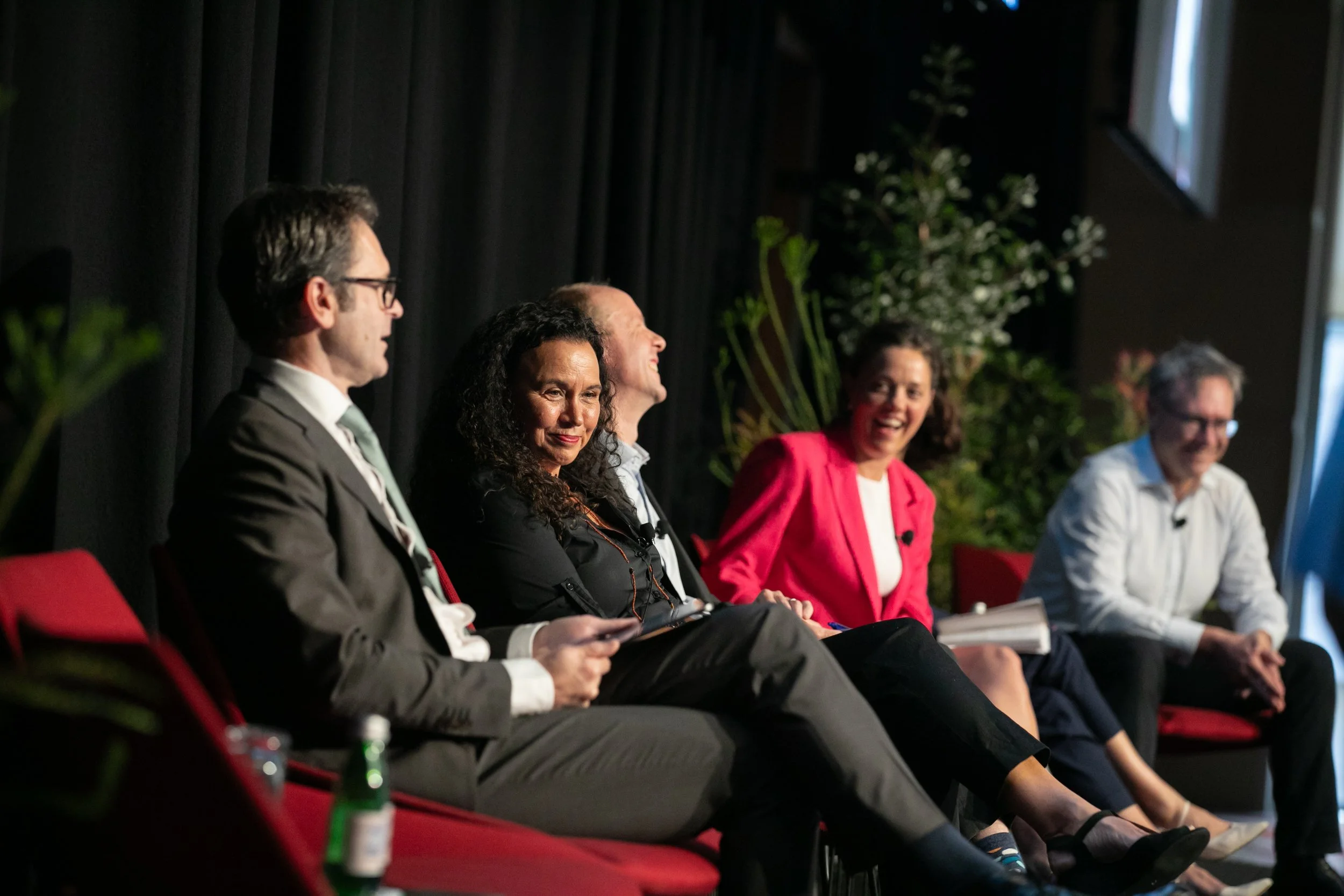ASFI Newsletter – Summit Wrap-up
Last week, at a sold-out summit, over 350 attendees from across finance, business, government, civil society, and academia came together to unpack this year’s theme; ‘driving ambition: Australia’s time to lead’.
There were so many rich discussions across all sessions, with attendees learning about practical examples; gaining inspiration from abroad; hearing what actions are needed to achieve a step-change across climate, natural capital and social outcomes; and uncovering how the finance sector can work collaboratively with government, universities, NGOs and others to achieve this.
Read below for key highlights from the event.
Highlights
The Hon. Stephen Jones MP
In an exclusive welcome, the Assistant Treasurer underscored the collaborative effort needed between Government and industry to achieve our sustainable finance ambitions:
“We have a big agenda, and we can’t do it alone. It has to be a collaborative effort. We know you’re all committed and ambitious for what Australia can achieve, and you know that we are ambitious as well.”
Steve Waygood, Chief Responsible Investment Officer at Aviva Investors
Steve Waygood of Aviva Investors delivered an inspiring keynote address:
“We all need to raise our game. Not just engage with companies, not vote at the AGM, but we need to engage with the system. We need to understand it using systems thinking and then analyse it, look at the impediments within the system and then seek to address it. A new level of thinking is possible.”
The State of Sustainable Finance in Australia
The first panel session brought panellists from across the finance sector to assess how Australia is tracking on sustainable finance and take stock of progress over the past 12 months.
ASFI Program Lead - Policy and Sustainable Finance Solutions, Purdie Bowden, presented key findings from ASFI’s 2023 Sustainable Finance Progress Tracker – launched Monday 23 October, and available here.
Panellists Adam Davids, Jacqui Fox, Alison Chan, Jeff Brunton, Sean Carmody, and James Fitzpatrick shared their perspectives on trends and developments in sustainable finance. As Australia moves rapidly from laggard to early follower on sustainable finance policy and regulation, panellists also identified how Australia can play a leadership role.
Embracing Innovation
In this highly engaging set of sessions, we set out to answer the question; “what role does financial innovation play to accelerate climate and sustainability outcomes?”
An exclusive keynote from Rhian-Mari Thomas OBE, CEO of the Green Finance Institute (GFI), set the scene, as she outlined the work of the GFI in bridging the ‘execution gap’ between the commitments and intentions of private capital, and the genuine bankable opportunities to achieve climate and social goals. She underscored the need for multi-stakeholder collaboration, and the right institutional approach.
“This is a really exciting time for financiers, not to sit and wait for standardisation and regulation to tell us what to do, but for us to do what we’re best at – which is finding solutions to problems and using our financial expertise, working closely to make sure regulation and policy is supportive, fit for purpose, and actually enabling us to crowd in capital.”
In a fireside chat with ASFI’s Kristy Graham, Ian Learmonth discussed the role of the Clean Energy Finance Corporation in catalysing private capital into clean energy and climate mitigation in Australia.
“Deploying publicly sponsored capital through the CEFC is about creating the right risk return environment for private capital to flow.”
Our panel session “Embracing Innovation” built on these key insights, with panellists Arj Dibley, Kirsty Moore, Ben Broché, Lee McDougall, Alexander Austin and moderator Tessa Dann contributing to an insightful discussion. They pointed to solutions currently being used to channel capital towards climate and sustainability, whilst also underscoring the need to look at ways to channel capital away from harmful assets. Panellists also stressed how blended finance can act as a crucial tool to ensure finance flows to climate solutions. And Kirsty Moore highlighted the innovative leading work of Indigenous Business Australia in lending for First Nations Australians.
Economic Reconciliation: how the finance sector can support economic self-determination for First Nations Australians
In a timely discussion, Rebecca Blurton, Ben Ainsworth, Mark Podlasly and Janice Morris joined us for our first session of the afternoon to discuss how the finance sector can support economic self-determination for First Nations Australians.
The discussion opened with a keynote address from Mark Podlasly, who brought his experience as a member of the Nlaka’pamux Nation and Chief Sustainability Officer at the First Nations Major Projects Coalition to provide insights and experiences from Canada: "The road to net zero runs through Indigenous lands."
Watch his full keynote address here.
Panellists then dived into the economic opportunities that land rights can provide to First Nations communities, opportunities to improve Reconciliation Action Plans to deliver on-ground outcomes, and lessons from abroad on what needs to happen to achieve a step change in economic reconciliation.
“We should all aim for partnership. In partnerships, both parties are equal, we’re looking out for each other, we’re looking to collaborate and move forward together.” – Rebecca Blurton
Stewards of the Land: Financing growth in natural capital
This session unpacked how we can integrate natural capital into economic decision making and incentivise an uplift in our natural environment.
The session opened with a fireside chat between Sue Ogilvy, program director of Macdoch Foundation’s Farming For The Future, and Joshua Gilbert, who revealed how the integration of scientific evidence and research and First Nations’ knowledge and understanding of Country can help to accelerate our understanding of the relationship between natural capital and economic performance and ensure healthy resilience landscapes into the future.
Josh and Sue were joined by panellists Heechung Sung, Andrew Saunders, Christina Tonkin and Arianna Cowling who discussed what financial institutions are doing to drive improved natural capital outcomes, opportunities for better integration of nature into financial decision making, initiatives in the nature space by the Australian Government, and the practical steps that can be taken to incorporate First Nations’ cultural knowledge and practices into the rapidly developing scientific evidence base linking natural capital to greater farm performance.
Talking Taxonomies and Driving Transition
There was a fantastic turnout at our highly anticipated final panel session “talking taxonomies and driving transition”, which featured Matteo Bigoni, Warren Tease, Jo Kelly, Zachary May, Charles Davis, Emma Garlett, Brian Cahill and moderator Nicole Yazbek-Martin.
Panellists spoke to how an Australian sustainable finance taxonomy could help financial institutions allocate capital to credible and necessary transition activities to achieve our net-zero emissions ambitions in line with the Paris Agreement goals. They also discussed how the principle of Free, Prior and Informed Consent can be embedded into a taxonomy; lessons learned from other jurisdictions, ongoing continued collaboration with our international peers, including New Zealand; and where a taxonomy fits in Australia’s broader sustainable finance architecture.
"The key theme is one of transparency. We need to improve the quality of information that markets have and ensure it is credible, comparable and easy for investors and regulators to use. That’s really where the taxonomy comes in: it’s about providing better quality information on climate and broader sustainability objectives." – Warren Tease
You can learn more about the development of an Australian sustainable finance taxonomy here.
The Great Debate
In this riveting close to our 2023 Australian Sustainable Finance Summit, Guy Debelle, Katerina Kimmorley, Alix Pearce, Simon O'Connor, Nathan Fabian and Robynne Quiggin debated whether a ‘hard and fast’ or a more ‘measured and achievable’ approach will deliver greater ambition.
Ultimately, both teams agreed on the need to go hard and fast, but to do that in a way which has integrity, brings all of the community along and maximises the social benefits of transition, particularly for First Nations Australians.
A great session where we were joined by some of the greatest minds in sustainable finance grappling with the trickiest questions.
News Highlights
Role for finance after No vote
Despite being voted down by the Australian public, the First Nations Voice to Parliament saw support from the private sector which viewed the federal advisory body as the next step for reconciliation. As the dust settles, experts say finance has an important responsibility in the journey ahead.
FS Sustainability
Australia passes sustainable finance test for first time
The Australian Sustainable Finance Institute (ASFI) has given the nation’s ESG practices a score above 50 per cent for the first time.
Investment Magazine
ASFI readies updated track of Australia’s sustainable finance progress
The Australian Sustainable Finance Institute will disclose the latest intelligence from its sustainable finance progress tracker at its annual conference in Sydney on 24 October. Ahead of the update, the institute’s chief executive, Kristy Graham, shares a sneak preview with KangaNews covering some of the primary focus areas and priorities.
KangaNews
Events
Interested in participating in other sustainable finance events? Register for one of the events below, and don’t forget to visit our Sustainable Finance Calendar to learn about more upcoming industry events.
November 16, 8:30am-10:15am – ASFI Webinar: Australia’s Home Energy Upgrade Fund. Join us for a webinar to learn how the HEUF can help accelerate home energy upgrades for Australian homes and hear international examples of home retrofit finance – what works, what doesn't, and how to design for success. Grace Tam, Head of Consumer Finance at the CEFC will give an update on the HEUF. Then experts from leading industry bodies and financial institutions in the UK and US will speak to the range of finance approaches that are being deployed in those jurisdictions and beyond.
November 22-23, Brisbane and online – The Climate Ready Australia National Summit. The inaugural Climate Ready Australia National Summit will focus on sharing knowledge and building capacity and networks for climate action. Hear the “must-have” conversations affecting organisations that are serious about advancing climate action and enabling a just transition, attend capability-building learning labs that get to the “how” of climate action, and build networks with climate leaders. By bringing together Australia’s peak bodies and members with climate experts, business, and government, we can significantly build capability and accelerate national climate action.
